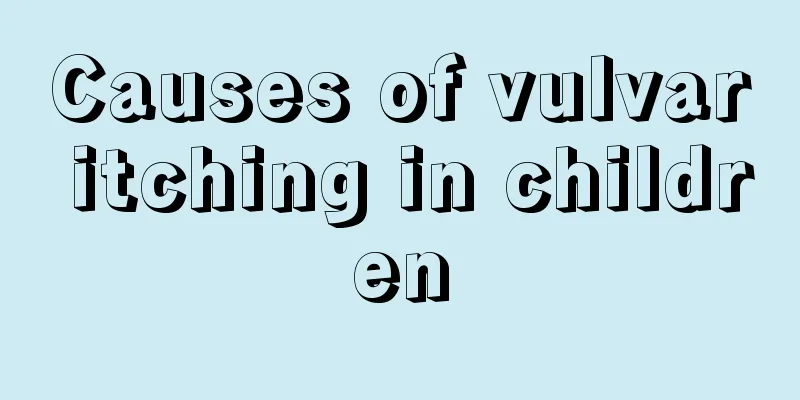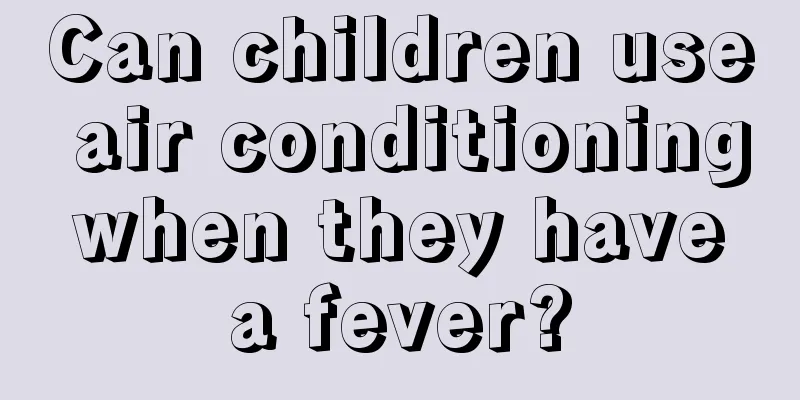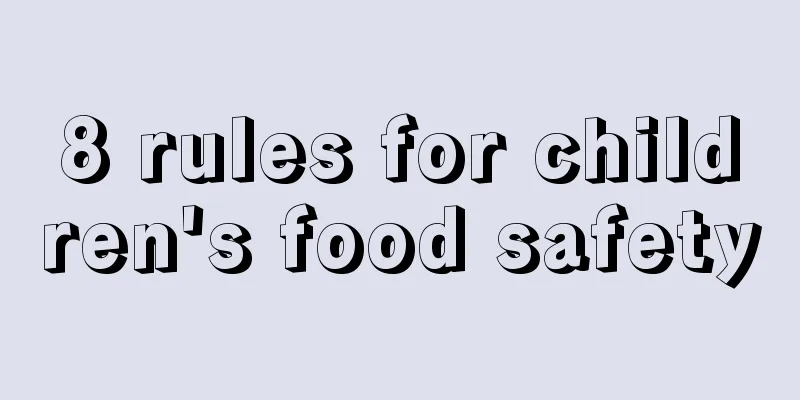What to do if your baby has pneumonia

|
Nowadays, every child is the treasure of the family, so the health of the child has become the most concerning issue for parents. However, recently many parents have reported that their children have pneumonia, so they are very worried, but there is no solution. So today we will introduce to you what baby pneumonia is. What should we do when we encounter this situation? Causes 1. Neonatal aspiration pneumonia The chemical inflammatory reaction/secondary infection in the lungs of newborns due to inhalation of amniotic fluid, meconium or milk is collectively called neonatal aspiration pneumonia. (1) Amniotic fluid aspiration pneumonia is a fetal distress caused by obvious intrauterine hypoxia. When gasping occurs, the exfoliated epithelial cells in the amniotic fluid block the terminal airways, causing dyspnea, followed by chemical inflammatory changes in the lungs or secondary infection. (2) Meconium aspiration pneumonia ① In cases where the gestational age is >42 weeks, the incidence of meconium staining of the amniotic fluid exceeds 30%, while in cases where the gestational age is <34 weeks, meconium is rarely discharged into the amniotic fluid. Meconium-stained amniotic fluid was once used as a synonym for fetal distress, but it is not very correlated with Apgar score, fetal heart rate abnormalities, umbilical cord blood pH, etc. Therefore, meconium-stained amniotic fluid with fetal heart rate abnormalities is a sign of fetal distress and perinatal complications. ② Normal intrauterine respiratory activity of the fetus will not lead to aspiration of meconium, but when fetal distress caused by obvious intrauterine hypoxia occurs and gasping occurs, meconium may enter the small airways or alveoli. Clinically, severe meconium staining of the amniotic fluid, tachycardia, and low umbilical artery pH all indicate the possibility of meconium aspiration and require active intervention. 2. Neonatal infectious pneumonia Prenatal and intrapartum infections are transmitted through amniotic fluid or blood. The causative microorganisms are similar to pneumonia caused by intrauterine inhalation of contaminated amniotic fluid. Bacterial infections are more common with Gram-negative bacteria, in addition to viruses such as group B streptococci, Chlamydia trachomatis, Ureaplasma urealyticum and CMV (cytomegalovirus). Postpartum infection can be easily transmitted to newborns when people who have direct contact with infants suffer from respiratory infections; in the case of omphalitis, skin infection and sepsis, pathogens can be transmitted to the lungs through the bloodstream and cause pneumonia; medical incubators, suction devices, nebulizers, endotracheal tubes, etc. are not strictly disinfected, medical staff have a weak sense of sterility and do not wash their hands frequently, and the transfusion of blood products containing viruses such as CMV and HIV can all cause illness. High-risk factors for nosocomial infection: ① birth weight <1500g; ② long-term hospitalization; ③ overcrowded wards and lax disinfection system; ④ too few nurses; ⑤ poor aseptic concept of medical staff. The above are some symptoms and simple treatments of baby pneumonia introduced to us by professionals. Therefore, parents who are still troubled by this problem may wish to refer to the content above. Parents should also pay more attention to their children's physical condition. If a disease occurs, immediate treatment is needed, but medication should not be used blindly. I hope the above content can help you. |
<<: When is the period for children to change their teeth?
>>: How to treat a 6-month-old baby's cough?
Recommend
Symptoms of iron deficiency in eight-month-old babies
In our lives, many babies lack some trace element...
What are the factors that cause the palms of newborns to be hot?
Nowadays, most families have only one child, and ...
Is it normal for babies to have a lot of eye discharge?
A baby is just born into this world. It is really...
The child has a low-grade fever of more than 37 degrees
Although a person's normal body temperature i...
There is a red spot on the baby's face
A newborn baby fills the whole family with joy. T...
Why does the baby's lower lip tremble?
When a baby first appears in this world, he or sh...
How can students better supplement their brains?
The competition in society is becoming increasing...
What is the normal armpit temperature for children?
The normal body temperature of our human body is ...
What to do if a 12-year-old girl is too fat
If a 12-year-old girl is too fat, it is often rel...
Can a one-year-old baby eat duck eggs?
Many people will slowly add complementary foods t...
What should you pay attention to before letting your baby swim?
Many parents like to take their babies swimming. ...
What ointment is good for hand, foot and mouth disease
After a baby gets hand, foot and mouth disease, h...
What should I do if a male baby has scrotal fluid accumulation?
After the baby is born, some parents will find th...
How to treat herpetic pharyngitis in children
Herpetic pharyngitis in children is a special typ...
What should I pay attention to when doing MRI on children?
Regarding the operation of MRI surgery, I believe...









